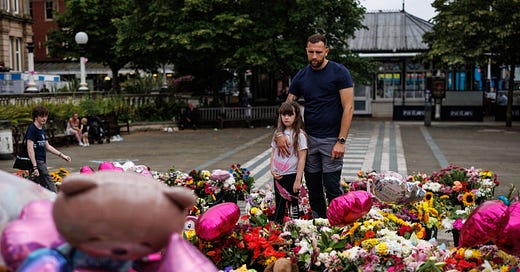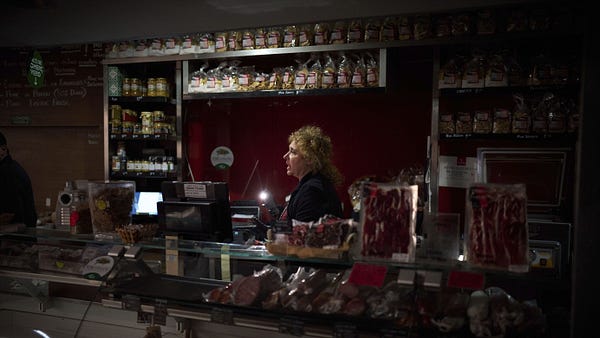
After the murder of three young girls at a dance class convulsed the UK this past summer, a rumor began that the murderer was an immigrant, and a potentially radical Muslim. This led to riots by anti-immigrant mobs and a few counter-riots by Muslim men. The authorities responded by clamping down on speech, with the government making it a crime to incite “racial hatred” or post “false communications.” As we wrote at the time, “The United Kingdom is prioritizing jailing its people for social media posts rather than addressing the causes of the violence.”
One of the many targeted in the crackdown was our columnist Douglas Murray. In August, a clip was posted on X of an interview he gave in which he said the violence could have been avoided if the government had been willing to squarely face the tensions immigration was creating in Britain. The Labour Party’s former director of communications responded: “Think @MetPoliceUK might want to take a look at this book plug”—implying that Murray was worthy of interrogation and possible arrest.
Thankfully, Murray was never arrested, but others were, for the crime of “speculating” about the identity of the attacker, 18-year-old Axel Rudakubana, who turned out to be neither an immigrant nor a Muslim. But as Murray explains in the piece below, which we are reprinting from The Spectator, we now know that the UK government was guilty of hiding an important piece of information. Last week, it was revealed that the authorities had found an al-Qaeda training manual in Rudakubana’s possession. It suggests that some of the so-called purveyors of “fake news” might have hit on the truth.
—The Editors
There are certain rules in British public life that are worth noting. Such as this one: If someone is killed by a jihadist or someone who could plausibly be connected to immigration in any way, the British public will not be informed of the possible motive—or at least not until it becomes impossible to conceal it any longer.













